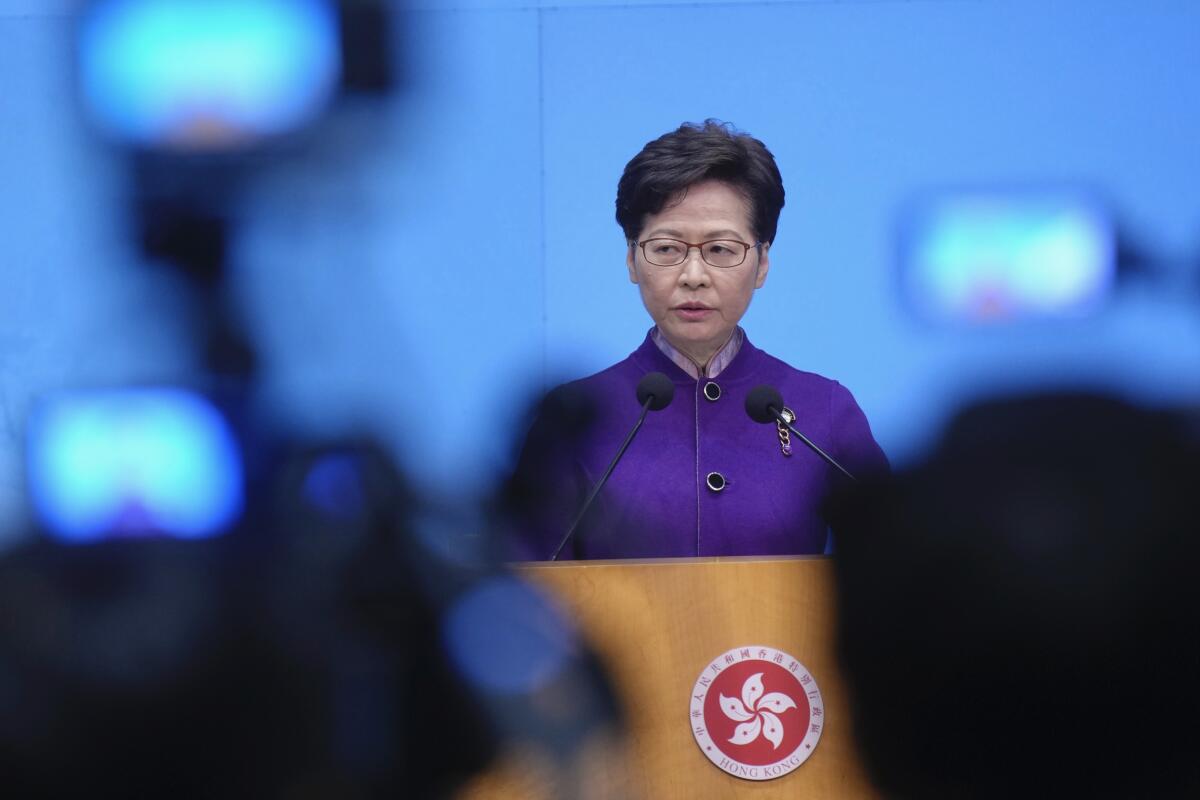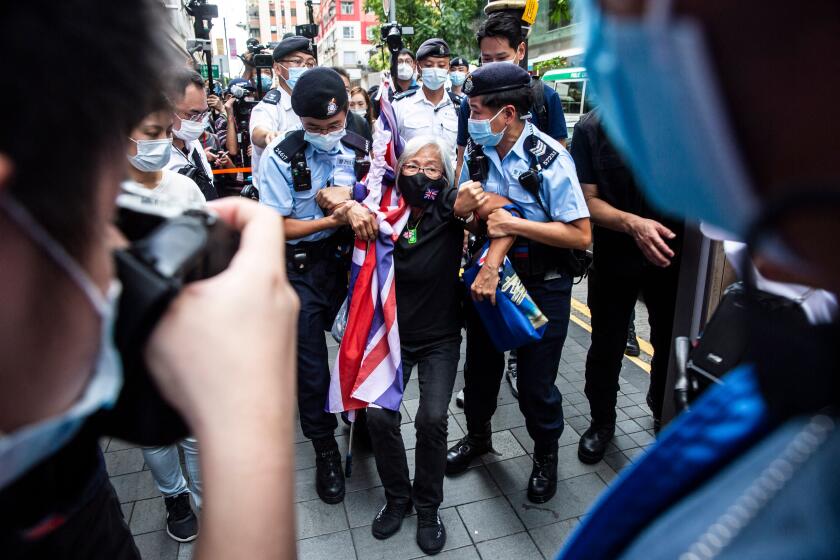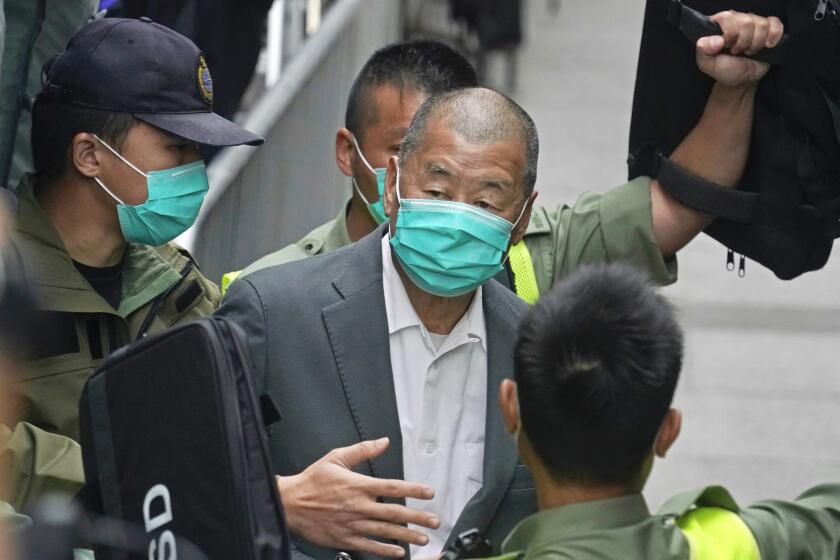Carefully vetted pro-Beijing candidates sweep Hong Kong’s elections

- Share via
HONG KONG — Candidates loyal to China’s Communist Party won a landslide victory in Hong Kong’s legislative elections after pro-democracy activists were imprisoned and authorities received the power to exclude those deemed inappropriate for office.
Pro-Beijing candidates won a majority of the seats in Sunday’s election after the laws were changed to ensure that only pro-Beijing “patriots” could run the city.
Hong Kong leader Carrie Lam said during a news conference Monday that she was “satisfied” with the election despite a 30.2% voter turnout — the lowest since the British handed Hong Kong over to China in 1997.
She said that the number of registered voters reached 92.5%, a record high compared with the 2012 and 2016 elections, when around 70% of voters had registered.
“For registered voters, deciding whether they want to exercise their voting rights in a particular election is entirely a matter for themselves,” she said.
“In this election, 1.35 million voters cast their votes. They did not just return candidates of their choice to LegCo” — Hong Kong’s Legislative Council — “and I think it was also because of their support for the improved electoral system,” Lam said.
Thousands of people from Hong Kong are fleeing increasing Chinese control over their lives and moving to Britain, which ruled the city for 156 years.
Under the new laws, the number of directly elected lawmakers was reduced from 35 to 20, even as the legislature was expanded from 70 to 90 seats. Most of the lawmakers were appointed by largely pro-Beijing bodies, ensuring that they make up the majority of the legislature.
All candidates were also vetted by a largely pro-Beijing committee before they could be nominated.
Lam said that even if there was a high turnout rate based on “poor politics,” such as the political polarization during anti-government protests in 2019, that is “not something we should be glad to have.”
Starry Lee, an elected pro-Beijing candidate from the Democratic Alliance for the Betterment and Progress of Hong Kong, said the 30% turnout was within “general public expectation.”
The convictions are part of a crackdown on dissent in Hong Kong, where Beijing’s tightening control has severely eroded civic freedoms.
“As I have mentioned before, this is a new system. This is a system that we call ‘patriots administering Hong Kong,’” Lee said.
“This is a different one from the previous one — therefore, you cannot compare directly. And I believe that with the new system, people need time to get used to that.”
The opposition camp has criticized the elections, with the largest pro-democracy party, the Democratic Party, fielding no candidates for the first time since the 1997 handover.
Chinese Foreign Ministry spokesperson Zhao Lijian said there were “multiple reasons” for the decline in voter turnout.
Breaking News
Get breaking news, investigations, analysis and more signature journalism from the Los Angeles Times in your inbox.
You may occasionally receive promotional content from the Los Angeles Times.
“It is not only the impact of the pandemic, but also the disruption and sabotage of anti-China elements in Hong Kong and external forces,” Zhao said at a daily briefing.
Some overseas pro-democracy activists, including London-based Nathan Law, urged a boycott of the vote, saying the elections were undemocratic. Under the new election laws, incitement to boycott the voting or to cast invalid votes could be punished by up to three years in jail and a $26,500 fine.
Lam said she expects that work with the 90 legislators would continue to be “very exciting” because they have different opinions on many social issues.
Lam is expected to travel to Beijing later Monday on a duty-reporting trip, which she says is to give a full account to Beijing on the latest political and economic situation in Hong Kong.
“I expect to cover a wide range of issues on this particular duty visit because, through two very decisive acts of the central authorities, Hong Kong is now back on the right track of ‘one country, two systems,’” she said, referring to the Sino-British agreement that was supposed to ensure a high degree of autonomy for the city for 50 years after its reversion to Chinese control.
More to Read
Sign up for Essential California
The most important California stories and recommendations in your inbox every morning.
You may occasionally receive promotional content from the Los Angeles Times.















